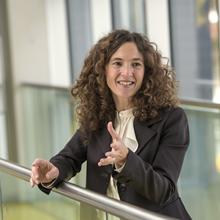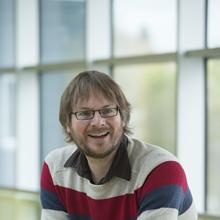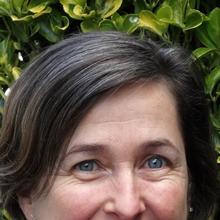Giving displaced women and girls in Central America and Venezuela a voice
Improving the sexual and reproductive health needs, and human rights of displaced women and girls in Central and South America
The last decade has seen an unprecedented scale of displacement of women and young girls from the ‘Northern Triangle’ of Central America (El Salvador, Guatemala and Honduras) and Venezuela. Forced migration is directly related to gang violence, poverty and political crises, all of which seriously affect the sexual and reproductive health needs and human rights of women and girls, causing enormous stress on their wellbeing while reinforcing already existing gendered-based inequities.
Researchers at the University of Southampton have been awarded a Global Challenges Research Fund grant of £2.2m to fund a new study to identify the sexual and reproductive health needs of women and adolescent girls displaced from Central America to Mexico and from Venezuela to Brazil and Colombia.
The researchers will look at issues such as management of menstruation, emergency contraception and birth, postnatal care, and the prevention and care of sexually transmitted infections and HIV. They will also look at health-seeking behaviour of women and adolescent girls in displacement, and barriers and challenges related to gender-based violence, stigma and discrimination. These are all extremely complex issues, both politically and in terms of delivery, and are areas that, so far, have been subject to very little research. The study will also assess the impact of displacement on local healthcare providers and how local health systems respond, noting the obligations of receiving and transit states, to ensure that the ‘human right to health’ is respected and protected.

Professor Pia Riggirozzi , Head of Politics and International Relations, will lead the study together with David Owen , Professor of Political Philosophy; Dr Andrew ‘Amos’ Channo n, Associate Professor in Demography; and Dr Sarah Neal , Associate Professor in Global Health.
“The numbers of displaced women and young girls are distressing but their experience is even more chilling. Millions of women and girls in Central America and Venezuela are caught in the vicious spiral of vulnerability to endemic violence and humanitarian crisis and forced displacement,” Pia explains. “And when they are on their migration journey, they are at risk of rape, trafficking, abuse and other risks related to poverty, stigma, discrimination and social exclusion. These challenges severely undermine their human rights.
Women and girls are especially vulnerable to risks exacerbated by situations of displacement. These issues have been overlooked in Central and South American contexts for too long. Our research will address their specific sexual and reproductive health needs and provide policymakers in Central and South America with new data and recommendations that will hopefully improve capacity and help them respond effectively to the health needs of this vulnerable group of people.
An innovative aspect of the project is that it will co-produce participatory research with non-governmental and civil society organisations working with displaced women and adolescent girls to uncover their lived experiences in relation to sexual and reproductive health, and the barriers in the way of health rights. Pia adds:
“Participatory methods will give female forced migrants a voice and create material for further public awareness and training sessions with community and health authorities. For instance, we will produce immersive short video documentaries and engage displaced women as photographers, unravelling their own views and experience using photos taken by them and testimonials to be presented at exhibitions and in a photo book.
We hope that hearing about the perilous experiences of displaced women and girls, directly from them, will be eye-opening for governments, health authorities, communities, aid organisations and individuals.
‘Redressing Gendered Health Inequalities of Displaced Women and Girls in contexts of Protracted Crisis in Central and South America (ReGHID)’ is an international project, led by the University of Southampton, which brings together research institutions in Central and South America (Honduras, El Salvador, Brazil, Colombia and Mexico), the University of York (UK) and intergovernmental and non-governmental organisations including the Council of Ministers of Health of Central America and the Dominican Republic (COMISCA), the International Organization for Migration (IOM) in El Salvador, Médecins Sans Frontières in Mexico, the United Nations Population Fund (UNFPA), and Facultad Latinoamericana de Ciencias Sociales (FLACSO) in Costa Rica.
Find out more on the projects website .
Did you know?
- Over four million people have migrated from Venezuela to Colombia, Brazil, Ecuador and other places in Central and South America since 2014. Just under half of those who migrated to Brazil and Colombia were women and young girls.
Related Staff Member
Related Staff Member
Related Staff Member
Related Staff Member
You may also be interested in

Pioneering new ways to improve democracy for all
Shaping political decision-making and democratic process with cutting-edge politics research.

Opinion polling: still key in elections
Political polling plays a crucial role in shaping the narrative of election campaigns, influencing party strategies, broadcasting regulation, media coverage, and the vote choices of citizens.

Designing a solution for homelessness
Creating a new living space to help those on the streets



